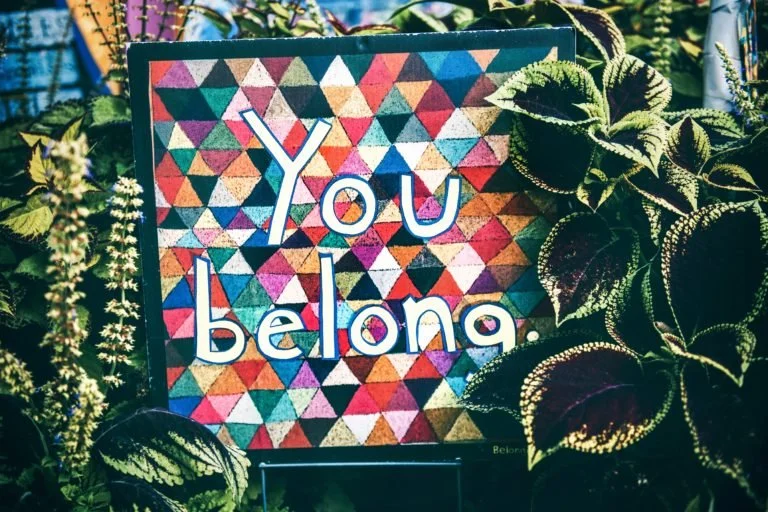Ep. 153: The DEIJ Collaborative--Working Towards Justice In International Schools
EQ: What does social justice and education work look like in international spaces?
We jumped back overseas with today’s conversations, meeting with international educators Meredith Klein and Sherri Spelic. This is a very education centered conversation but we hope there’s a gem of thought for every listener. Throughout the episode we unpack various education acronyms such as CEESA and AEILOC. We hear the origin story of the Diversity Collaborative they started and the ways they hope it will impact teaching and learning across Europe.
Lastly, if you are interested in reaching out you can connect with Meredith via LinkedIn, follow Sheri @edifiedlistener, sign up for her newsletter Bending The Arc, or snag a copy of her book of essays Care At The Core
Champagne & Real Pain
🥂 AEILOC & Kevin Simpson
🥂Angeline Aow and her book Becoming a Totally Inclusive School
Do Your Fudging Homework:
Hope: Sign up for Bending The Arc
Megan: Connect to others that can help you be accountable to the work
Sherri: Worry less about knowing and get into learning (where can I learn about that? With whom can I learn about that?)
Meredith: DEI Deconstructed by Lily Zheng
Ep. 62: Why Social Justice Education Matters in A World on Fire
EQ: How can social justice education help students and teachers be better global citizens?
Today our guest is Christina Torres also known as @biblio_phile.
From Teach For America to leading her own classroom at the Punahou School in Honolulu, Hawai‘i, Torres opens up about her journey as a social justice educator. Throughout the episode we circle back to three major questions:
What is my work in justice now, given my position of privilege?
How can I make my kids feel safe/heard/comforted at this moment in time?
How can I continuously reflect and grow in my own awareness about matters of justice in the world?
We know that our students will face a variety of challenges, injustices and problems in the world. It’s not about what they will experience but a matter of how they might experience it. Social justice oriented educators strive to equip students with the tools to navigate the challenges (not necessarily solve them). We help students understand the “danger of a single story.”
Finally, we explore the tension between staying aware and protecting our mental health/managing tumultuous times through self-care. We share our own strategies for helping students discuss these important issues while managing the array of emotion present in any given classroom.
References & Resources:
Read Christina’s work at any of the following: ChristinaTorres.Org, Teaching Tolerance, Honolulu Civil Beat, TeacherPop, PRX’s OnBeing, and EdWeek Teacher.
Hope especially likes these two pieces: Assessment as an Act of Love; Mindfulness Won’t Save Us. Fixing the System Will.
According to Oxfam global citizenship is a framework where students:
Build their own understanding of world events.
Think about their values and what's important to them.
Take learning into the real world.
Challenge ignorance and intolerance.
Get involved in their local, national and global communities.
Develop an argument and voice their opinions.
See that they have power to act and influence the world around them.
Unesco defines global citizenship in this way, “While the world may be increasingly interconnected, human rights violations, inequality and poverty still threaten peace and sustainability.”
NPR Podcast “Codeswitch”
Do You Fudging Homework:
Hope: read up on global citizenship and why, even if you’ve never left Tacoma or whatever city you’re listening from, you should adopt that framework for your life.
Christina: NPR Throughline podcast
Contact Christina ChristinaTorres.Org or on Twitter @bilbio_phile
Follow us on Twitter @IWL_Podcast or Facebook: Interchangeable White Ladies Podcast
Ep. 61: Fighting for Equity in New Zealand Public Schools
Essential Question: How is fighting for equity in schools a universal struggle?
Sometimes you attend a conference and one of the most powerful takeaways is a connection with someone from another part of the world. When Hope was partnered with Naketa during a pair-share exercise, she knew this was a conversation that needed to be recorded and shared with a wider audience. This week’s episode is truly a GLOBAL conversation. On December 21, Annie braved floods to record in our Tacoma studio. Our amazing guest, Naketa Ikihele woke up bright and early to record with us on her summer vacation (from her car!). Hope tried not to laugh too loudly at 1 am as she recorded in her sister’s dining room in the Philippines.
Naketa Ikihele is a primary school educator, and coach/consultant with Kia Mahira in Auckland, NZ. To start the show, she introduces herself with a traditional opening common in Maori culture that honors her family, tribe, and land. Throughout the episode, we compare NZ and US education systems, specifically focusing on how teachers fight for diversity and equitable educational opportunities for all students. Naketa shares insight into governance and the effort to revitalize cultural pride in indigenous children. She also describes how NZ systems approach challenges such as the recruitment of teachers and supporting vulnerable students. One highlight is when Naketa shares that developing partnerships with parents is starting with a simple question “what do you dream for your child?”
For further study:
Government program New Zealand Now
Webber and MacFarlane’s research The Transformative Role of Iwi Knowledge and Genealogy in Maori Student Success
You can follow Naketa’s work by visiting her websiteKia Mahira or on Twitter @Naketa_NZ
Champagne & Real Pain:
🥂 2019 is basically over. Good riddance.
👎🏻 People comparing Donald Trump’s impeachment trial to Jesus’ trial before Pontius Pilot
Do Your Fudging Homework:
Hope: read one of the links we posted & make room in your mind
Annie: learn more about global poverty from the “We Day” website
Follow us on Twitter @IWL_Podcast or Facebook: Interchangeable White Ladies Podcast




